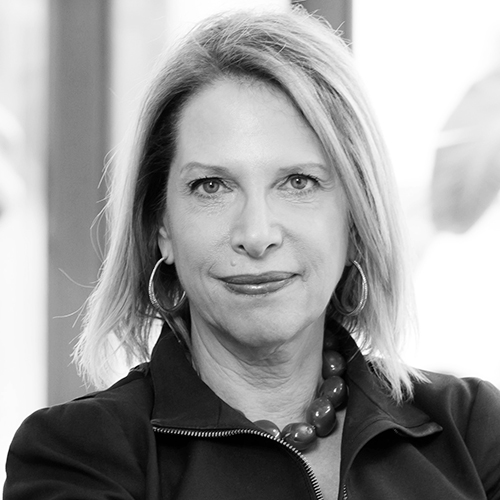Before becoming the SVP, business operations, and CIO at ForeScout, Julie Cullivan has blazed a successful path at FireEye. It’s not just her technological expertise that’s led the way but her people skills, as well.
Cullivan was the executive vice president of business operations and chief information officer at FireEye, an industry-leading cybersecurity firm. For Cullivan, the company’s success relied heavily on healthy relationships with FireEye customers, partners, and employees alike.
“When I think about how critical existing customer relationships have been for our success, growth, and our channel and strategic partnerships that we’ve been able to put in place, those don’t work if you haven’t put emphasis on building the right relationships to help grow a company,” Cullivan says. “We would not be where we are today without our customers and our partners having been part of the success.”
The focus on relationships not only helped FireEye’s sales grow, but its employee base, too. When Cullivan started at FireEye, there were four hundred people working there. Today, there are about three thousand employees. A lot of the growth was organic; FireEye hired strong players to help build the company, and two large acquisitions and a handful of additional small acquisitions extended its employee pool significantly. It’s one thing to hire a lot of people, but another for them to stick around. FireEye has excelled at the latter because it’s taken time to invest in employee engagement.
“I think it goes back to having a culture of strong business relationships and business engagement,” Cullivan says. “If you look cross-functionally from go-to-market, services, support, and operations, everybody needs to be focused on how we quickly integrate new and acquired employees into the organization. If you don’t invest in building those personal relationships, I think it’s difficult to be successful.”
Cullivan applied FireEye’s culture of investing in personal relationships to her own team. The relationships she maintained with her staff are professional, but she recognized the fact that every employee is a person first. That’s why she took the time to get to know something about everyone on her crew outside of work and is able to say something about everyone beyond the work they do at FireEye.
“People are amazed at how important that is for people to want to know them as an individual, not just, ‘What can you do for me?’ or ‘Have you gotten your work done?” Cullivan says. “It can’t be fake, however. It has to be real. That’s where you start to build that trust.”
Teamwork through Tech
Like a lot of other companies, Cullivan’s IT department touched every part of the organization. That’s a lot of bonds for her team to form, but Cullivan learned that creating a give-and-take relationship with members of other departments is a strong course of action. Rather than force their ideas and solutions on people, her team engaged in deeper conversations with colleagues to see what problems need to be solved.
Trust also played a part in how Cullivan and her team related to the rest of the company. The team had to prove it can deliver and do the things it says it’s going to do. When that track record of credibility is developed, Cullivan found that her team had built a rapport with its business partners, and they’ll come to the IT department with problems, not answers.
Although difficult, having transparent conversations has also helped create strong employee relations. Sometimes not everyone agrees on how to solve a problem, or roadblocks come up that require the IT and business partners to work together.
“The stronger the relationship is, the easier it is to have those courageous conversations,” Cullivan explains. “It’s about being willing to have those tough conversations when necessary and not hoping that the issues are just going to go away—because they rarely do.”
Cullivan also pushed her team to be proactive about branding, messaging, and communications. In a supporting role , such as IT, it’s easy to say that no news is good news, Cullivan says, but she saw that as a missed opportunity for her team to show how it can contribute to the company’s overall success. Instead, she prefered that her team express the value it brings and the impact it’s making on the business.
When it comes to day-to-day work, Cullivan and FireEye emphasized the effectiveness of the work employees do. It’s not always about what was accomplished but about how the task was achieved.
“If you want to have those strong relationships, it comes down to how you get the work done,” Cullivan says. “It’s about helping people understand that strong execution with a lot of broken relationships along the way is not as valuable as getting things done by building and maintaining relationships while you’re doing that work.”
Continuing collaboration
While FireEye continues to focus on its mission to relentlessly protect its customers with innovative security technology and expertise, it is also focused on the path to profitability. The initiatives that Cullivan and her team led to help FireEye get there are focused on automation and optimization. IT opened its doors to anyone who has an idea related to automation. The department recognized not everyone can do the technical work to make their idea a reality, but that shouldn’t stop people from presenting what they have in order to prioritize the biggest opportunities.
“What we try to do is start with, ‘Hey, anybody that has a great automation idea, get it to us,’” Cullivan says. “Then, we prioritize those automation opportunities and find technical resources within the organization and say, ‘Help us build this.’”
As she continues to encourage others and to help lay the foundation of strong relationships, Cullivan also embraces every learning opportunity she can.
“I certainly know that I can learn from others about how they approach these opportunities and problems,” she says. “My experience at FireEye has been really exciting. It’s challenging in a lot of new and different ways, and every day is unique. But that’s what keeps me energized and engaged.”

